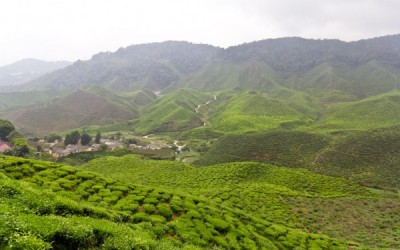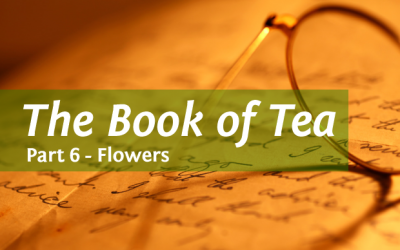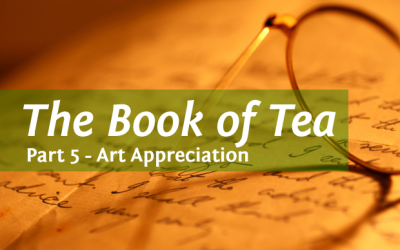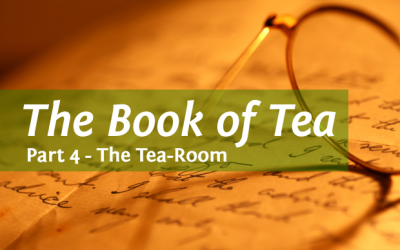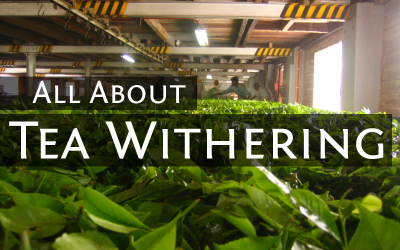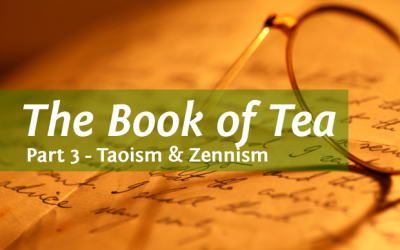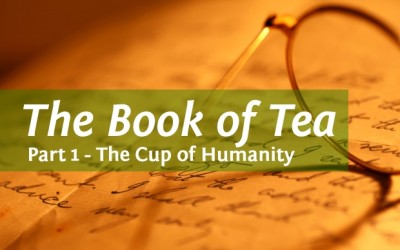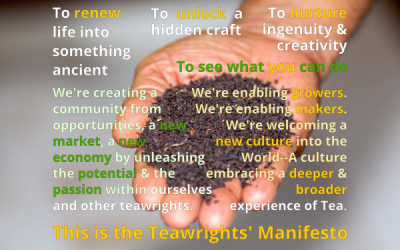
A Teawright’s Blog
— Let’s explore the art of Tea Craft —
Where Does Tea Flavor Come From?
Tea dates back as far as 2737 BC, when legend claims it was discovered in China. Today, tea is grown and consumed all around the world, but where it’s grown plays a crucial role in how the tea develops and tastes. This concept is known as terroir, the environmental conditions, particularly soil and climate, which influences the flavor and aroma of any given food or beverage. There’s a lot that goes into tea terroir, but let’s start off with the basics!
Meet the Interns
This Summer marks the first time Teawrights runs an internship program. I’m very excited about this, because it also informally means Teawrights is growing internally. Hopefully I don’t stumble up too much! Fortunately I have a little outside help on this.
Kakuzo Okakura’s The Book of Tea Part 6
The Book of Tea is an essay written by Kakuzo Okakura in 1906. It’s considered one of the classics of tea culture and has held a wide influence for more than a century. In his essay, Okakura addresses us (the Western audience) and discusses the role of tea in Japanese culture.
So to give you something interesting to read, I’m sharing his work here. Each week I release a new section, doing my best to illuminate the passages with images & highlighting quotations I find interesting.
We continue now with the sixth part: “Flowers”.
Kakuzo Okakura’s The Book of Tea Part 5
The Book of Tea is an essay written by Kakuzo Okakura in 1906. It’s considered one of the classics of tea culture and has held a wide influence for more than a century. In his essay, Okakura addresses us (the Western audience) and discusses the role of tea in Japanese culture.
So to give you something interesting to read, I’m sharing his work here. Each week I release a new section, doing my best to illuminate the passages with images & highlighting quotations I find interesting.
We continue now with the fifth part: “Art Appreciation”.
Kakuzo Okakura’s The Book of Tea Part 4
The Book of Tea is an essay written by Kakuzo Okakura in 1906. It’s considered one of the classics of tea culture and has held a wide influence for more than a century. In his essay, Okakura addresses us (the Western audience) and discusses the role of tea in Japanese culture.
So to give you something interesting to read, I’m sharing his work here. Each week I release a new section, doing my best to illuminate the passages with images & highlighting quotations I find interesting.
We continue now with the fourth part: “The Tea-Room”.
All About Tea Withering
Withering, Wilting, Whatever It Is—Let’s Talk About It
In which I explore tea withering: what it does, the different types of wither, and how they’re affected by you the teawright.
Kakuzo Okakura’s The Book of Tea Part 3
The Book of Tea is an essay written by Kakuzo Okakura in 1906. It’s considered one of the classics of tea culture and has held a wide influence for more than a century. In his essay, Okakura addresses us (the Western audience) and discusses the role of tea in Japanese culture.
So to give you something interesting to read, I’m sharing his work here. Each week I release a new section, doing my best to illuminate the passages with images & highlighting quotations I find interesting.
We continue now with the third part: “Taoism & Zennism”.
Typhoon Haiyan Recovery
How to help the survivors of Super Typhoon Haiyan in the Philippines.
Kakuzo Okakura’s The Book of Tea Part 2
The Book of Tea is an essay written by Kakuzo Okakura in 1906. It’s considered one of the classics of tea culture and has held a wide influence for more than a century. In his essay, Okakura addresses us (the Western audience) and discusses the role of tea in Japanese culture.
So to give you something interesting to read, I’m sharing his work here. Each week I release a new section, doing my best to illuminate the passages with images & highlighting quotations I find interesting.
We continue now with the second part: “The Schools of Tea”.
Tea Tannins Part 3 – Black Tea
Introduction Tannins, the common name for a group of compounds that food scientists prefer to give a more complicated name. They like to call them plant polyphenols since they’re molecular compounds composed of multiple phenolic groups. If I just lost you, it’s ok,...
Kakuzo Okakura’s The Book of Tea Part 1
The Book of Tea is an essay written by Kakuzo Okakura in 1906. It’s considered one of the classics of tea culture and has held a wide influence for more than a century. In his essay, Okakura addresses us (the Western audience) and discusses the role of tea in Japanese culture.
So to give you something interesting to read, I’m sharing his work here. Each week I’ll release a new section, doing my best to illuminate the passages with images & highlighting quotations I find interesting.
We begin with the first part: “The Cup of Humanity”.
Tea Tannins Part 2 – Green Tea
Part 2 of our articles on tea tannins. A deeper look at tannins in green tea. What they are, how they affect flavor, and the best way to steep for them.
Tea Art & Tea Bags
While browsing for creative uses for tea, I came across some interesting Tea Art using spent tea bags.
The Teawrights’ Manifesto
Please bear with me, this is the first typographic poster I've ever made. I'm currently doing a 21 day challenge, and the today's challenge requires me to create a mini manifesto for the Teawrights. After a lot of thought and rough drafts, here is our manifesto in...
Steeping Your New Tea
You created something different. So how do you go steeping your new tea? Short answer. just a bit differently.
Interviewed – My Japanese Green Tea Podcast
The other week, Ricardo Caicedo chatted with me in a podcast for his “My Japanese Green Tea Blog”. It was a fun interview, in which I talked his ear off.
Crafting a Kilo of Tea
On crafting a kilo of tea for a beer festival, appreciating tea garden craft, and exploring a new rolling technique.
Marketing Internships are Coming
After chatting with a bunch of folks, we decided to begin some marketing internships. Numerous foodie startups here in Boston have interns and say the relationship is incredibly beneficial for both sides. Autumn is here, the students have returned so I decided it...

